WOULD YOU LIKE TO GO PAPERLESS?
Speakers Bureau
Under the direction of Dee O’Neill, our BrainHealth experts share the latest science to unlock brain potential, translating complex neuroscience into practical application to enhance how people think, work and live.
We deliver interactive learning experiences to organizations and corporate groups of all sizes. Continuing Education credits may be offered for licensed professionals.
For more information or to schedule a speaker, please contact: bpispeakers@utdallas.edu
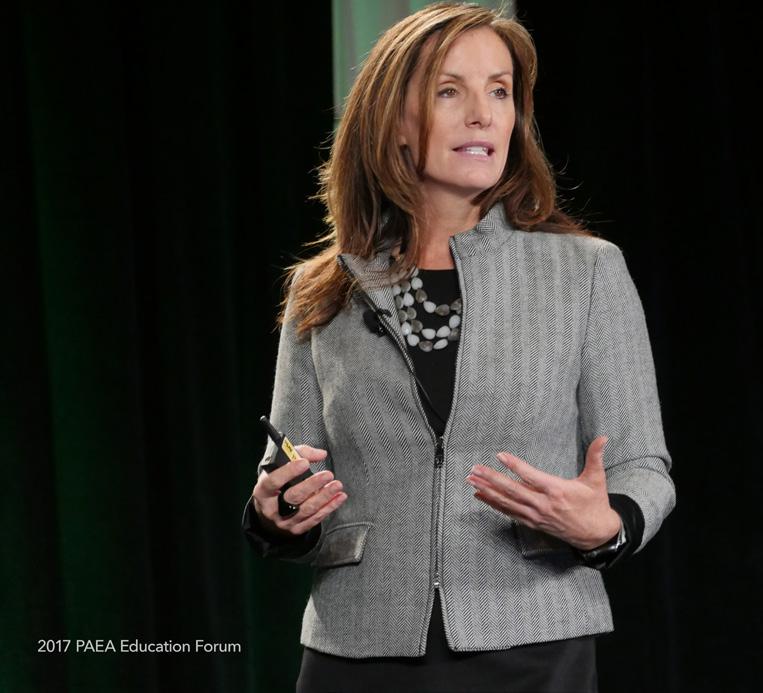
In April 2018, the Center for BrainHealth® at The University of Texas at Dallas invited Dr. Geoffrey Ling, a world-renowned neurologist and retired U.S. Army medical officer, to co-lead The BrainHealthProject, a global initiative that seeks to double brain health by 2027.
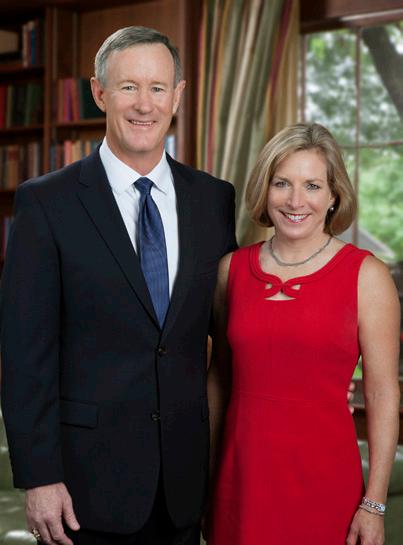
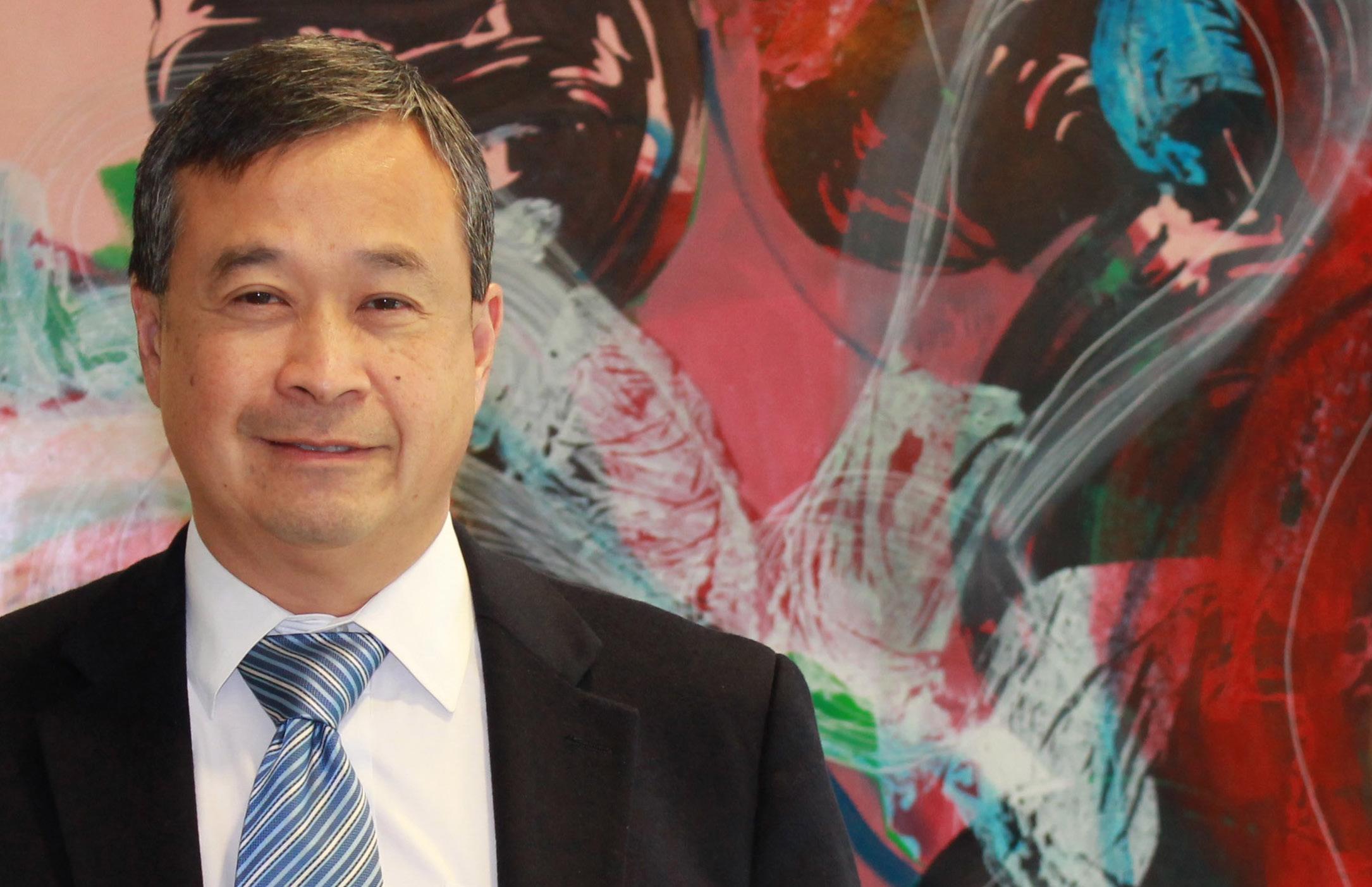
Global
“Discoveries to advance brain health and performance, as well as cure neurodegenerative diseases, are lagging behind other essential areas like heart health and cancer treatment,” said Dr. Ling. “While the human lifespan has doubled over the last century, the brain’s ability to keep up with the body’s longevity has not.”
Dr. Ling is a practicing physician, a technology development expert, and a change-maker. He assisted with the organization and launch of President Obama’s BRAIN Initiative and served as the Assistant Director for medical innovation in President Obama’s White House Office of Science, Technology and Policy Continued on
• Science Updates: TBI and Depression • Program Spotlight: Kids and Education INSIDE THIS ISSUE Center for BrainHealth’s Brain Matters Newsletter Q3 | 2018
Page 8
Sign up to receive Brain Matters Quarterly, the e-edition! Please email brainmatters@utdallas.edu
Initiative Dee O’Neill A nnouncing the 2018 L eg A cy A wA rd h onorees , to be c e L ebr Ated o ctober 23: Admiral
McRaven i n A ppreci Ation of their ste A dfA st dedic Ation to country , stAte A nd community • Donors & Partners: Highland Capital Management Warrior and First Responder Reunion • New Board Members 1233
Dr. Geoff Ling to Co-Lead
(Ret.) and Mrs. William H.
Take Time for Tea Time
Former personal chef to Queen Elizabeth II, Princess Diana and Princes William and Harry
Followed by a special panel discussion on the neuroscience of making time for the things we enjoy
For more information, contact Gail Cepak: gail.cepak@utdallas.edu | 972.883.3408
From the Head of Commercial Operations
As I reflect on my first several months at the Brain Performance Institute, I’ve been struck by the team’s passion and its support of our mission to “deliver brain science innovations to enhance how people think, work and live.”
Having already put into practice a few of the methods we teach clients, especially the “Brainpower of 2” and scheduling brain breaks, I’ve seen firsthand the impact these tools have on my focus and productivity (and the impact of not doing so).

I have been involved with healthcare innovation for the past 15 years, and I’m confident that BrainHealth® is one of the next Big Things in the ever-growing healthcare market.
However, we are not alone in bringing solutions to the general public. Competition is growing, which underscores that our leadership was correct in focusing on this innovative research years ago and in establishing the Brain Performance Institute to accelerate and broaden the delivery of what that research has proven about keeping our brains healthier longer.
To honor our mission and to achieve our vision to “empower people of all ages to unlock their brain potential,” I encourage the entire team to hold themselves – and me – accountable to practice what we preach. If we do that as a team, over time, each and every one of us will have helped make millions of lives better. How many people can say that?
From the Director of Communications and Marketing
The Center for BrainHealth® and the Brain Performance Institute have enjoyed strong growth during their young history. Multiple scientific studies are underway at any given time; and workshops, trainings, educational programs and related events have touched nearly 6,000 people in just the past year. And the growth continues.

I was privileged to work with a wide variety of brands large and small over the past 20 years at The Richards Group, one of the country’s pre-eminent branding agencies. The strength and potential of the BrainHealth brand was a major part of what attracted me here earlier
Stephen White
this year. What sets us apart is our unique ability to perform leading-edge research and then translate the discoveries into programs that help people improve their brain function, performance and health — we have an unbeatable story to tell.
As you will see in this newsletter (and when you visit us in person or online), we continue to gather momentum. What a privilege to be affiliated with an organization whose work stands to benefit so many people in such impactful and enduring ways!
Dr. Sandra Bond Chapman

 Chief Director
Dr. Leanne Young
Executive Director
Chief Director
Dr. Leanne Young
Executive Director

OctoberWednesday, 17, 2018 | 3:30 pm
HIGH TEA WITH DARREN M c GRADY
TO PURCHASE TICKETS: GIVING.UTDALLAS.EDU/TEATIME 2200 West Mockingbird Lane, Dallas, TX 75235 | centerforbrainhealth.org | 214.905.3007
Center for BrainHealth’s Brain Matters Newsletter
CENTER FOR BRAINHEALTH
BRAIN PERFORMANCE INSTITUTE
Stephanie Hoefken
MESSAGES
STAFF
www.centerforbrainhealth.org @BrainHealth @BetterMyBrain CenterForBrainHealth @centerforbrainhealth @brainperformanceinstitute WE INVITE YOU TO FOLLOW US:
Age and Financial Decision-Making
All too often, as people age, we expect and accept diminished capacities; but this overlooks, shortchanges and discounts our competence to remain actively engaged in personal financial matters.
Dr. Sandra Bond Chapman Founder and Chief Director of the Center for BrainHealth®
A new study conducted by the Center for BrainHealth® examined the influence of age on financial decision-making in terms of sure options versus gamble options. In the study, 200 cognitively healthy adults between 28 and 79 years old completed three hours of cognitive testing and several rounds of financial decisionmaking questions. They were tested on a large battery of cognitive measures in the domains of executive function, memory and complex attention.

The study showed that individuals who performed better on certain cognitive tests, regardless of age, were less likely to make risky financial decisions. Dr. Chapman and the Center for BrainHealth believe this research is particularly important because the findings caution against attributing impaired decision-making to age alone.
Cognitive Training Reduces Depression
Certain cognitive training exercises can improve brain health in individuals years after they have suffered a traumatic brain injury (TBI), according to new research from the Center for BrainHealth®
Led by Dr. Kihwan Han, the study included 79 individuals with chronic TBI, randomly assigned into one of two groups: strategybased training and informationbased training. Of the participants, 53 were classified depressed.
The depressive-symptom severity, psychological functioning scores and data from MRI brain scans were collected before training, after training and three months posttraining. Scans were used to study changes in brain structure and neural network connectivity.
All participants in the depressed group showed significantly reduced depressive symptoms associated with improvements in cognitive and daily life functioning. The study also suggests that reductions in depression symptom severity correlated with increased cortical thickness within the prefrontal cortex — an area of the brain responsible for executive functions needed for emotional control — and reductions in abnormally elevated neural connectivity within this region.


Virtual Training for Veterans with TBI
The Center for BrainHealth® has created a game-based intervention for veterans with traumatic brain injury (TBI) called Expedition™. TBI-related symptoms like trouble concentrating, short-term memory loss and slow cognitive processing can persist long after onset – sometimes over the course of a lifetime. For this reason, interventions that address the cognitive symptoms associated with TBI can have a large impact on quality of life.
Through funding by the Department of Defense, Expedition was developed to improve veterans’ daily life functioning through cognitive training.


The four-week program is home-based and features a computer game with real-life scenarios to assess cognitive skills related to attention, memory and reasoning. The game challenges participants by inserting distractions as they complete tasks and quizzing them on facts that they learn as they play. By tracking and evaluating performance in each scenario, participants can see their progress. As their skills improve in the game, these gains can translate to improvements in their daily-life functioning.

The Expedition team is currently recruiting participants. For more information, please email Richard Cole at richard.cole@utdallas.edu
Joining the Neuroscape Alliance
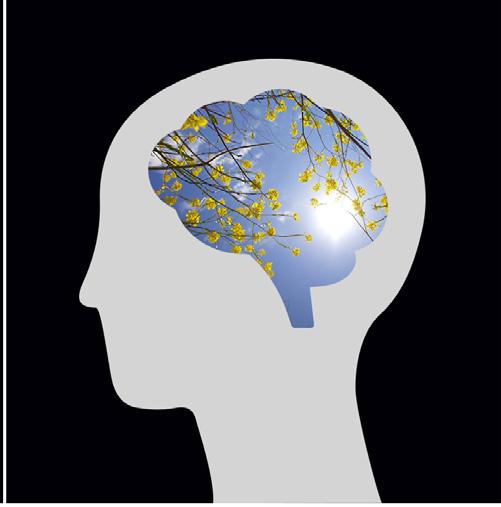
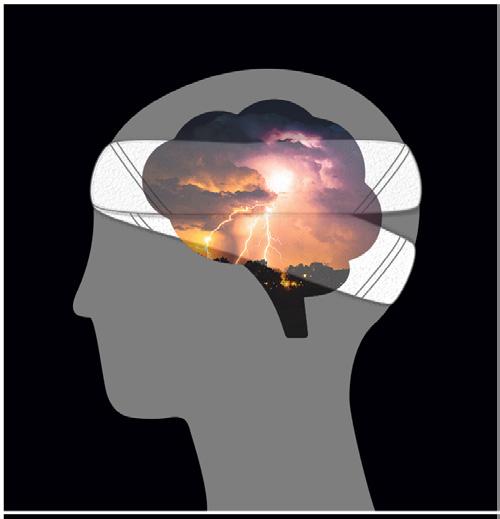
The Center for BrainHealth ® at The University of Texas at Dallas has recently joined the Neuroscape Alliance, an international affiliation of academic institutions, clinical centers, and research facilities that share the vision of leveraging new, noninvasive technology to advance translational neuroscience research.
Dr.
Neuroscape
Center for BrainHealth’s Brain Matters Newsletter page 3 SCIENCE UPDATES
We are excited to welcome the Center for BrainHealth to the Alliance, and we are confident that together we will continue to reshape education, wellness and medicine.
Adam Gazzaley Founder, Executive Director
- UCSF
YOUNG PROFESSIONALS RAISE $25,000 FOR DALLAS POLICE DEPARTMENT BRAIN TRAINING PROGRAMS
The Think Ahead Group (TAG), young professionals who are passionate about brain health, has granted $25,000 to fund Strategic Memory Advanced Reasoning Training (SMART) and mindfulness training for the Dallas Police Department (DPD).


The majority of the funds were raised at TAG’s Cinco de Derby event, sponsored by Sewell Automotive Companies. This annual event was held on May 5 at the Dallas Arboretum. Guests came in Derby and Cinco de Mayo attire to watch the Kentucky Derby, enjoy Tex-Mex and southern fare and socialize.





SMART has been shown to improve strategic thinking, elevate mental energy and enhance attention and focus, all critical skills needed in the law enforcement profession. The mindfulness training program is designed to improve resilience and emotional self-regulation, reduce mind wandering, strengthen attention, decrease depression and anxiety, and promote well-being.
DPD personnel can also participate in the Brain Performance Institute’s new heart rate variability (HRV) training, which teaches individuals how to synchronize cognitive, emotional, and
physiological functions. With adoption and continual practice, the HRV techniques can be utilized to healthfully rewire emotionallyinfluenced neural patterns that support information processing, decision-making and general flourishing.
FOLLOW US
Center for BrainHealth-TAG @thinkaheadgroup
Center for BrainHealth’s Brain Matters Newsletter page 4
Back Row, Left to Right: Josh Oswald, Cody O’Steen, Jason Stangel, Claire Davis, Ben Davis
Front Row, Left to Right: Kelsey Wolfe, Kristen Carter, Kendal Kramer, Bethany Voss, Lizzy Miller
Rachel Stone, Kali Willis, Lizzy Miller, Alex Monroe, Ellie Troyer
Dean Somes, John Patton, Rob Lowe
Kristen Carter, Kendal Kramer
Kara Shannon, Kevin Cecala, Bethany Voss, Claire Bauman
Emily Blann, Nicole Pennington, Samantha Hagan, Paige Venteicher, Alison Lambert
SPOTLIGHT
New Program Helps Kids After Brain Injury
Studies reveal that a brain injury in childhood and adolescence is frequently associated with lasting and/or later-emerging impairments in higher-order cognitive processes that can affect all aspects of life.
However, because higher-order cognitive skills are not yet fully developed in kids, these issues often go unrecognized and untreated – a key gap in the standard of care following pediatric brain injury.
To close this gap, this fall the Brain Performance Institute is rolling out the Youth Brain Injury Assessment and Monitoring program for kids ages 8-18.
Participants complete a customized evaluation of their higher-level cognitive-communication skills. A report provides recommendations such as follow-up monitoring, coordination to facilitate classroom supports, parent education, interaction with existing service providers and more. Annual followup evaluations are offered until the child is 18, allowing for the identification of changes over time.
This program draws from research conducted at the Center for BrainHealth®, one of the country’s leading research institutes focused on understanding the long-term consequences of brain injury in youth.
For more information, please visit brainhealth.utdallas.edu/programs
This program represents a truly unique community resource to facilitate a continuum of care for kids after brain injury. We are devoted to maximizing long-term recovery and reallife function, helping characterize, support and ignite brain development and potential at each new stage.
Dr. Lori Cook Director of Clinical Research
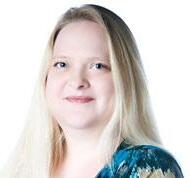
Adolescent Reasoning Initiative Reaches More Than 62,000 Students Across Texas


Excitement filled the air as the latest cohort of teachers – some from as far away as El Paso and Laredo – received instruction and inspiration in how to help their students better develop their executive function.
Working with the Adolescent Reasoning Initiative team under the leadership of Dr. Jacque Gamino, the teachers experienced brain changes firsthand through SMART training and came away newly equipped to help their students develop high-level executive function.
More than 62,000 students have already benefitted from the techniques SMART-trained teachers have implemented in the classroom.
In an exciting new collaboration with Dr. Bruce Wexler, Professor Emeritus and Senior Research Scientist in Psychiatry at Yale University, SMART training will be further enhanced by providing in-classroom training for kids to understand the basics of executive function.
Kids Hone Social Skills with Charisma ™
The summer of 2018 has brought some of the most exciting technological advances leading to the nationwide kickoff of the Charisma for Youth program at the Brain Performance Institute. Charisma, a virtual strategy-based social training tool, is grounded in research conducted at the Center for BrainHealth®
With the addition of Charisma in the cloud, kids ages 8-18 who are struggling socially can connect with a clinician online and experience virtual world interactions in real time.

“Many kids have trouble putting themselves out there socially, and Charisma offers a safe learning environment to enhance how they think, play and live,” explains Maria Johnson, program head.
For DFW-area families looking for a more traditional training model, Charisma is offered in person at the Brain Performance Institute, as well as at partnering private schools. More information is available at: brainhealth.utdallas.edu/programs
To ensure access for all, the Center for BrainHealth is now accepting donations for Charisma For Youth. “Any amount helps,” shares Johnson. “Contributing to a child’s social success is one of the best ways I can think of to give back.”
To make a donation, visit: brainhealth.utdallas.edu/donate
Maria Johnson Head of Charisma for Youth
Center for BrainHealth’s Brain Matters Newsletter page 5
PROGRAM
The Brain Performance Institute is well positioned to leverage the latest science in cognitive processing, and with Charisma in the cloud, we can empower children with social struggles to unlock their true potential, no matter where they live.
Students participate in Adolescent Reasoning Initiative SMART activities.
John “Tig” Tiegen Speaks at Highland Capital Management Warrior and First Responder Reunion
On May 19, John “Tig” Tiegen, veteran of the U.S. military and Central Intelligence Agency (CIA) and contributor to the New York Times bestselling book, 13 Hours: The Inside Account of What Really Happened in Benghazi, shared his intense story about saving lives, the ensuing mental challenges, and his journey back to stronger mental health. The lecture was generously sponsored by Fluor Corporation as part of a special Highland Capital Management Warrior and First Responder Reunion event.
A former sergeant and infantry squad leader, Tiegen applied his military training as a security protection contractor on missions in Afghanistan, Pakistan, and Iraq. He was an essential part of the rapid response to the terrorist attack on the American diplomatic compound in Benghazi, Libya on September 11, 2012, which left four Americans dead.
Tiegen participated in the Center for BrainHealth’s high-performance brain training program after transitioning back to civilian life. He knows firsthand the challenges faced by those who serve our country and communities in high-stakes roles.

Before the lecture, warriors and first responders were invited to a special reunion, with food and beverages, live music, and information from the Brain Performance Institute’s Veteran Service Organization (VSO) partners.


This event, which was conceptualized by the Brain Performance Institute’s philanthropic partner, Highland Capital Management, aimed to bring awareness to the physical and emotional impact that first responders, law enforcement personnel, military veterans and many others experience.

“There were a number of motivations driving this event,” said Highland Capital Management co-founder and president Jim Dondero. “We not only wanted to celebrate the Center for BrainHealth’s work serving those who serve our country and city, but we also hoped to highlight the shared experiences of these groups and help build a broader peer network connecting the veteran and law enforcement communities.”
Dondero and his colleagues at Highland Capital were inspired by the calls to action put forth by the city’s current and former police chiefs: “DPD leadership
BvB Dallas Has Discovery Group’s Back

BvB Dallas continues to support the Center for BrainHealth’s Discovery Group, a program for people with early-stage dementia, their spouses and caregivers. Participants learn about the science behind the disease, ways to maintain and refine their strengths, and strategies for moving forward on a positive path.
The most recent grant award will add dedicated programming for caregivers, educational resources for healthcare professionals and science-based education for the public at large.
Past grants have supported the Discovery Group as well as research on the effects of cognitive training and transcranial direct current stimulation (tDCS) on individuals with mild cognitive impairment (MCI), the precursor to Alzheimer’s disease. In addition, BvB’s leadership team helped conceive a dinner and dance for Discovery Group members, a now-annual event held at the Brain Performance Institute each spring.
has clearly expressed the need to have the best people in law enforcement roles, engaging with the communities they serve. Post-9/11 veterans have a wealth of experience that would be invaluable to our city’s police force, so we saw the opportunity to play a part in bringing these groups together.”
We have elected to fund the Center for BrainHealth® for the last three years due to their strengths-based approach, their unwavering commitment to improving the lives of those with Alzheimer’s, and their vision for the future as they continue to expand their programs. Above all, we have grown to know and love the Discovery Group members and the passion that Audette [Rackley, program head] and her team have created.

AWARE Funds Dementia and Sleep Research
The AWARE Fund of The Dallas Foundation has awarded a grant of $20,000 to the Center for BrainHealth ® in support of its research on the relationship between sleep and cognitive impairment. The study ultimately aims to lay the groundwork for more comprehensive, effective interventions for those in the early stages of Alzheimer’s disease.
Center for BrainHealth’s Brain Matters Newsletter page 6
Catelyn Cappleman Fox BvB Board Member Head of Beneficiaries and Community Outreach
David Truesdale, Jason Howland
John Tiegen, Dr. Sandra Chapman
Congressman Pete Sessions, John Tiegen, Linda Owen
DONORS & PARTNERS
AWARE Members Kim and David McDavid Jr, Leanne Young Josey Kennington, Jolie Humphrey, Stacey Angel
In Memoriam: Margaret McDermott


In her 106 years on earth, Margaret McDermott touched thousands of lives as one of Dallas’s most historic and influential philanthropists. She and her husband, Eugene McDermott, focused their efforts on excellence in the arts, education and research. Together they generously donated millions to various local institutions, including the Dallas Museum of Art, Dallas Symphony Orchestra and The University of Texas at Dallas.


Mrs. McDermott’s visionary impact can be felt notably at The University of Texas at Dallas, established by Mr. McDermott, J. Erik Jonsson and Cecil Green, the founders of Texas Instruments. Mrs. McDermott’s support helped further her husband’s dream for UT Dallas, developing into a high-energy, nimble, innovative institution that offers top-ranked science, engineering and business programs, and has gained prominence for a breadth of educational paths from cognitive neuroscience to arts and technology.
In 2000, she followed up her husband's largesse by donating $32 million to UT Dallas to establish the



What a hero and model of brain health Margaret was to all in her midst! A hero is one who kindles a great light in our world – and that is precisely Margaret. She illuminated our city, our university, and the world, as ‘her’ scholars will continue to improve the world around them. None of us will ever be able to think of The University of Texas at Dallas without reflecting on the eternally beaming light of Margaret’s smile, wit, vision, humanity and intellect.
Eugene McDermott Scholars Program. The program has helped more than 200 bright students explore their varied interests. She challenged them to never stop learning; as a result, they have gone out in the world and become doctors, scientists and even filmmakers who are making a positive impact. In a letter to Mrs. McDermott, one scholar wrote, “The Eugene McDermott Scholars Program is so much more than a scholarship; is it an invitation to learn about the world around us, to explore individual interests, and to chase dreams.”
Mrs. McDermott demonstrated her exceptional brain health through her ability to connect people and bring them together towards a common goal, which has changed the face of Dallas and beyond. Although she commonly declined any sort of public recognition, in November 2017, the Center for BrainHealth at The University of Texas at Dallas presented her with its highest honor, the Legacy Award, given to individuals whose vision and dedication enables the Center and its Brain Performance Institute to empower people of all ages to unlock their brain potential.
NEW BOARD MEMBERS
Shelly Slater is a multi-Emmy Award-winning journalist. After 10 years on the anchor desk at WFAA, Shelly now runs her own company to help corporations win business and trust by delivering a message that sticks. From lawyers to CEOs and real estate groups, Shelly crafts stories that break through in a distracted world.

“I’ll never forget the day I came to interview a soldier about PTSD at the Center for BrainHealth. I popped open a Diet Coke, and he started crying. A Coke was the last thing he saw before his team hit an IED. In the midst of it all, the Center for BrainHealth offered hope. A place where he could re-train his brain and filter out the noise of life. That’s the day it clicked: the research and training provided by BrainHealth is a gamechanger. Our best brain years can be ahead of us! Who doesn’t want to be part of that?”
Dr. Hilgenbrink is a Managing Director and Portfolio Manager for Highland Capital’s dedicated Healthcare equity funds. He has been actively involved in the biotech sector for more than fifteen years. This includes pharmaceutical experiences spanning the commercial, research and investment management functions. Dr. Hilgenbrink holds a Doctorate of Chemistry from Purdue University and a MBA from the Owen Graduate School of Management at Vanderbilt University. He completed his Bachelors of Science degree in Biochemistry from the University of Missouri.
“I am honored to represent Highland Capital Management and serve an organization that is exploring the frontiers of brain research. The Center for BrainHealth’s commitment to translating its findings into actionable programs that improve the lives of our community is inspiring, and I look forward to being a part of that mission.”

The Schoellkopfs are passionate about the Center for BrainHealth for numerous reasons. Sarah worked as the Center’s Community Relations Director for over five years. During that time, Will got involved in launching the Center’s young professional group, the Think Ahead Group (TAG), ultimately serving as its Vice President. While working together on TAG, Sarah and Will began dating. Now, nearly a decade later, they are married with two young children and are excited to join the Board.
“We know many of the BrainHealth team members personally and are amazed by the breadth and depth of their research. We look forward to working alongside the team to further the cause of BrainHealth.”
Center for BrainHealth’s Brain Matters Newsletter page 7
Dr. Sandra Bond Chapman Chief Director Center for BrainHealth
1912-2018
Andrew Hilgenbrink, PhD Shelly Slater
Sarah and Will Schoellkopf
Grace Cook, Margaret McDerrmott
Dr. Eric Kildebeck, Dr. Walter and Dr. Felicity Voit, Jessie Voit
Dr. Jonathan Coker, Margaret McDermott, Dr. Benedict Voit
Dr. Hobson Wildenthal, Dr. Richard Benson, Ross Perot, Margaret McDermott
Debbie Francis, Laura Bush, Margaret McDermott, Deedie Rose, Caren Prothro
Dan Patterson, Mary McDermott Cook
(OSTP). While working at the Defense Advanced Research Projects Agency (DARPA), he led a project that pioneered the first brain-controlled artificial limb for amputee victims and later founded and led the Biological Technologies Office.
He holds appointments at Johns Hopkins University and the Uniformed Services University of the Health Sciences, and he is the Acting Vice Chair for Research at Inova, a not-for-profit healthcare system based in Northern Virginia.
Dr. Ling served 21 years of active duty in the U.S. Army Medical Corps. He deployed multiple times as a critical care physician to assess traumatic brain injury (TBI) care in combat. He was named as the first “Physician of the Month” by the 10th Combat Support Hospital and was requested by name to consult with former Congresswoman
Gabrielle Gifford’s trauma team following the attempt on her life.
Dr. Ling has a BA in Biology and History from Washington University in St. Louis, a medical degree from Georgetown University, and a Ph.D. in neuropharmacology from Cornell University. He is board certified in both neurology and neuro critical care. He has published more than 200 peer-reviewed primary research journal articles, review articles and book chapters.
Dr. Ling joins fellow Brain Project co-leader Dr. Ian Robertson, the founding director of Trinity College Institute of Neuroscience in Dublin, in providing medical direction relative to the shortand long-term health and societal impacts of new brain research. He works to expedite translation of metrics, knowledge, protocols and technologies
CORPORATE BRAINHEALTH SERVICES
Bring BrainHealth® to your company today!
Customize a program for employees and executives:
• Assess processing capacity and agility with Corporate BrainHealth Physicals
• Sharpen high-performance cognitive skills with Executive SMART™
• Consult on BrainHealthy Workspaces™
• Manage stress with Resilience and Performance Solutions™
• Extend benefits with BrainHealth Executive Experience™
FOR MORE INFORMATION, PLEASE CONTACT:
Steve White
972-883-3309 | stephen.white@utdallas.edu
2018 SYMPOSIUM
Measuring Brain Health
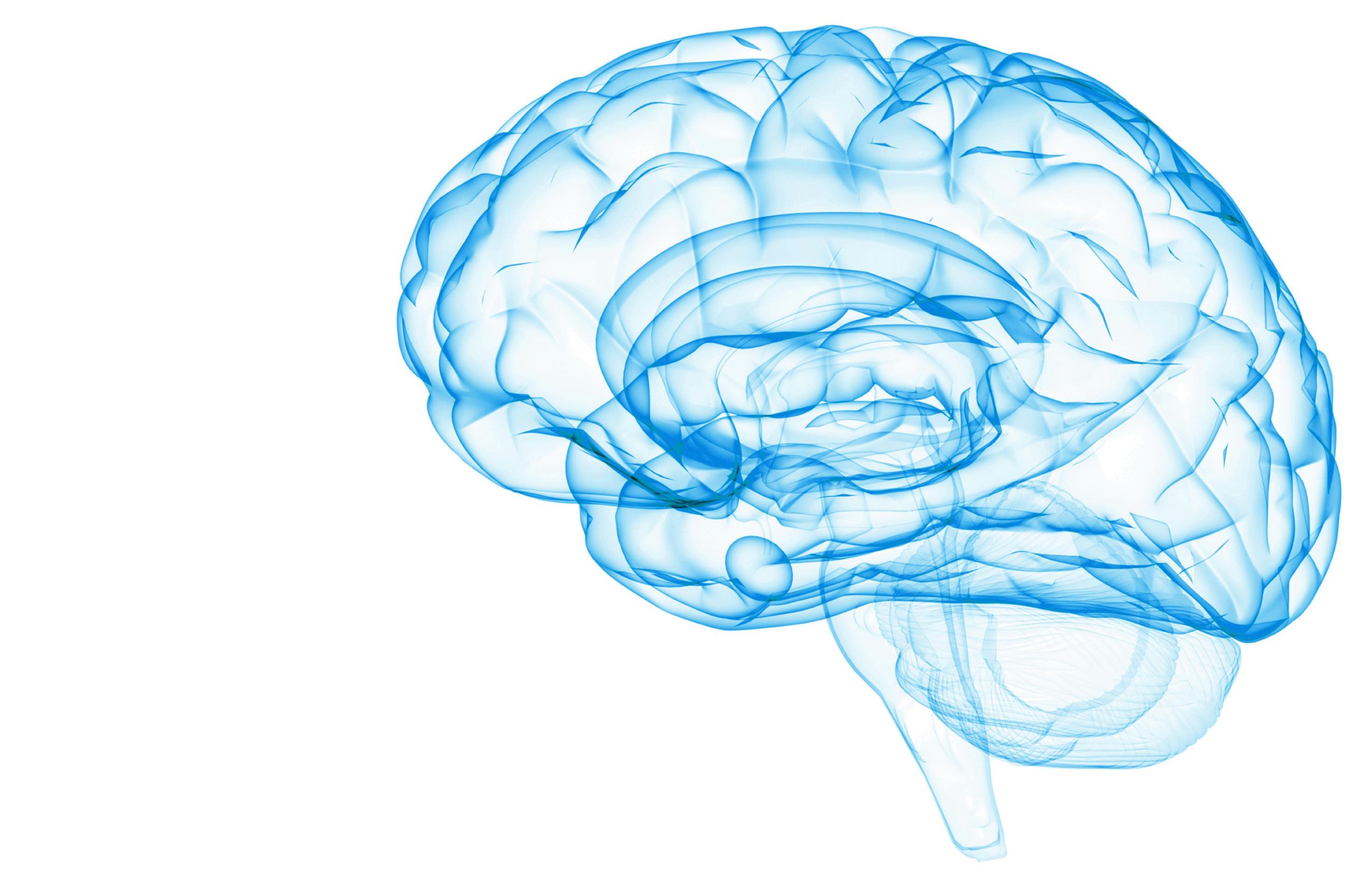
This year’s Reprogramming the Brain to Health Symposium convened a diverse set of internationally renowned scholars to focus on how to measure the healthy brain.
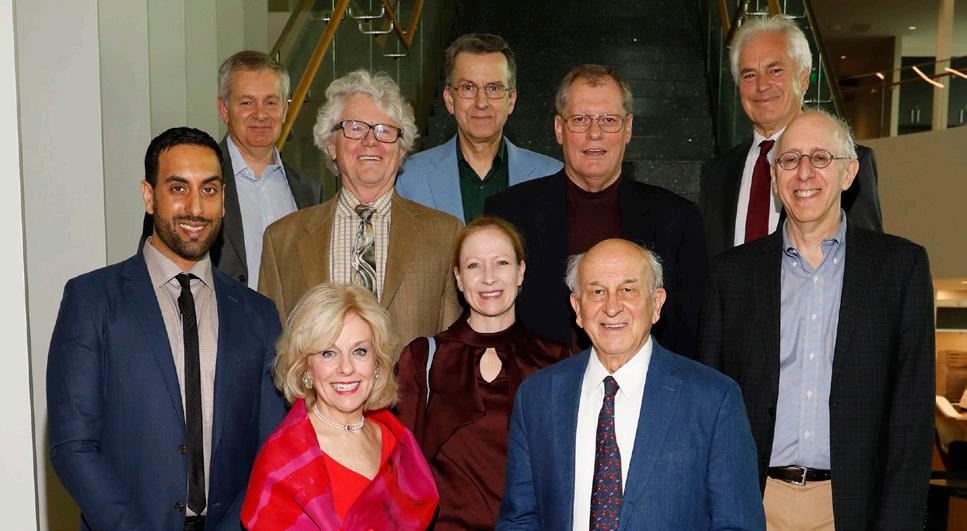
Highlights included a discussion of new measures for brain injury recovery by Elisabeth Wilde (University of Utah) and the potential of brain network analysis by Gagan Wig (UT Dallas). Randy Engle (Georgia Tech) and Paul Burgess (University College London) took on general intelligence, memory capacity, and new ways to measure the brain while people walk and talk in their everyday environment. The role of brain chemistry and how lifestyle improves our brain health was also discussed.
into clinical practice. Alongside Dr. Sandra Bond Chapman, another co-leader of The BrainHealth Project, Dr. Ling plays a major role in fundraising, expanding partnerships and increasing public awareness of the initiative.
We have an audacious goal to double brain health, but I believe these targets are within reach. The BrainHealth Project will have a transformative impact on the new field of brain health.
Dr. Geoff Ling
We Need Your Support!
Your gift will help us continue to extend BrainHealth throughout the community.
Please make your donation at brainhealth.utdallas.edu/donate/
The day concluded with the presentation of the Charles Branch Award to esteemed neuroanatomist Pasko Rakic, who still spends most of his time in the lab well into his eighties –a clear model of brain health!
Hosted jointly by the Center for BrainHealth® and the Helen Wills Neuroscience Institute at UC Berkeley, the Symposium is designed to engage cognitive scientists, neuroscientists, physicians, psychologists, rehabilitation specialists, researchers, educators and students to share the latest breakthroughs in brain research.
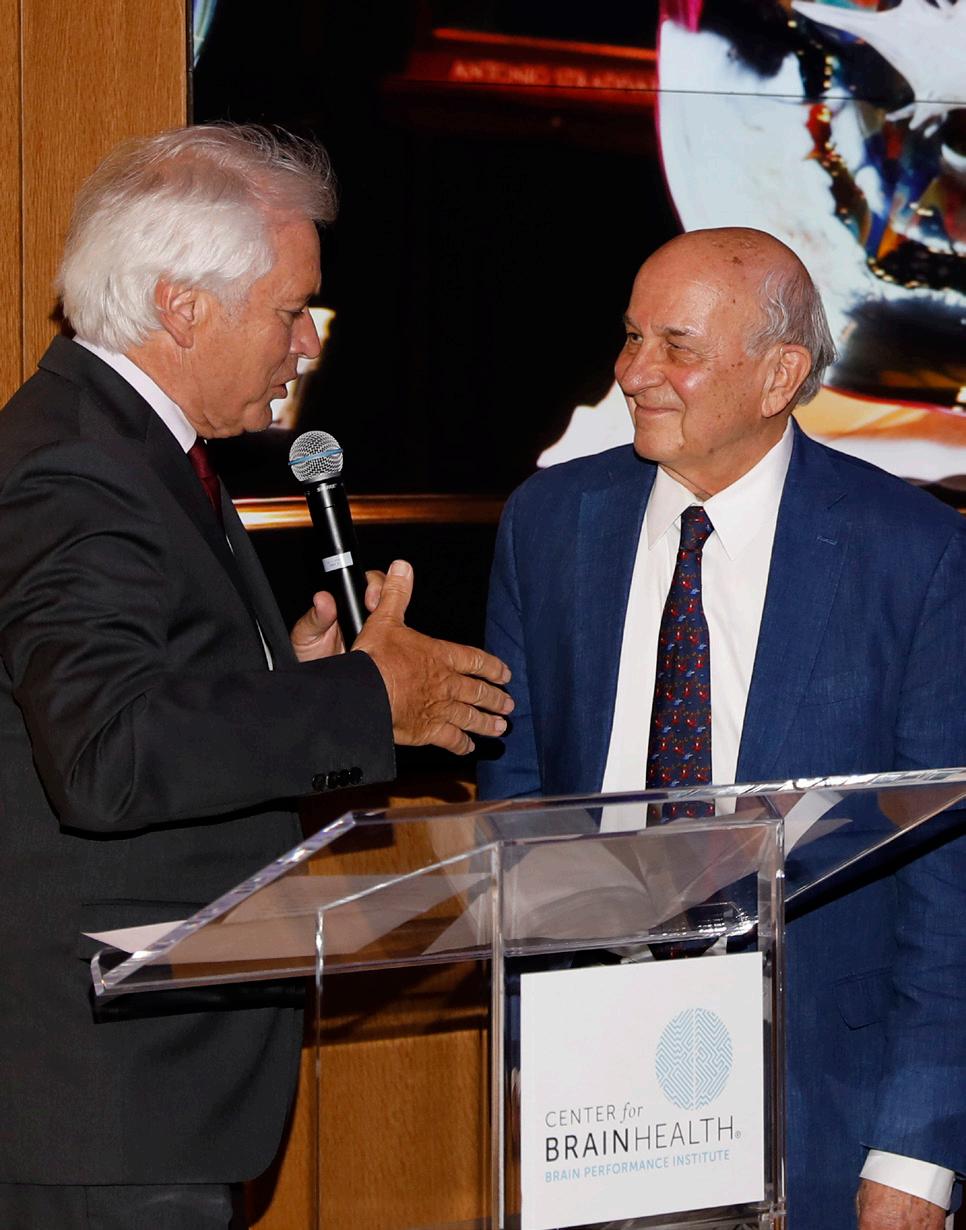
Center for BrainHealth’s Brain Matters Newsletter page 8
Continued from Page 1
L to R: Gagan Wig, Paul Burgess, Sandra Chapman, Gary Aston-Jones, Dallas Hack, Elisabeth Wilde, Randall Engle, Pasko Rakic, Ian Robertson, Yaakov Stern
Ian Robertson, Pasko Rakic







 Chief Director
Dr. Leanne Young
Executive Director
Chief Director
Dr. Leanne Young
Executive Director





































